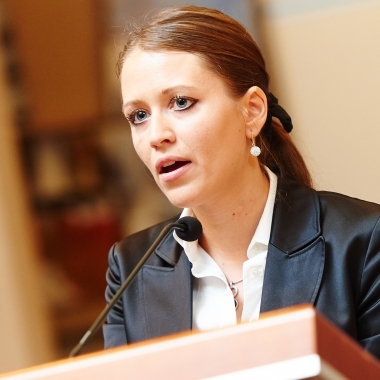Related publications
-
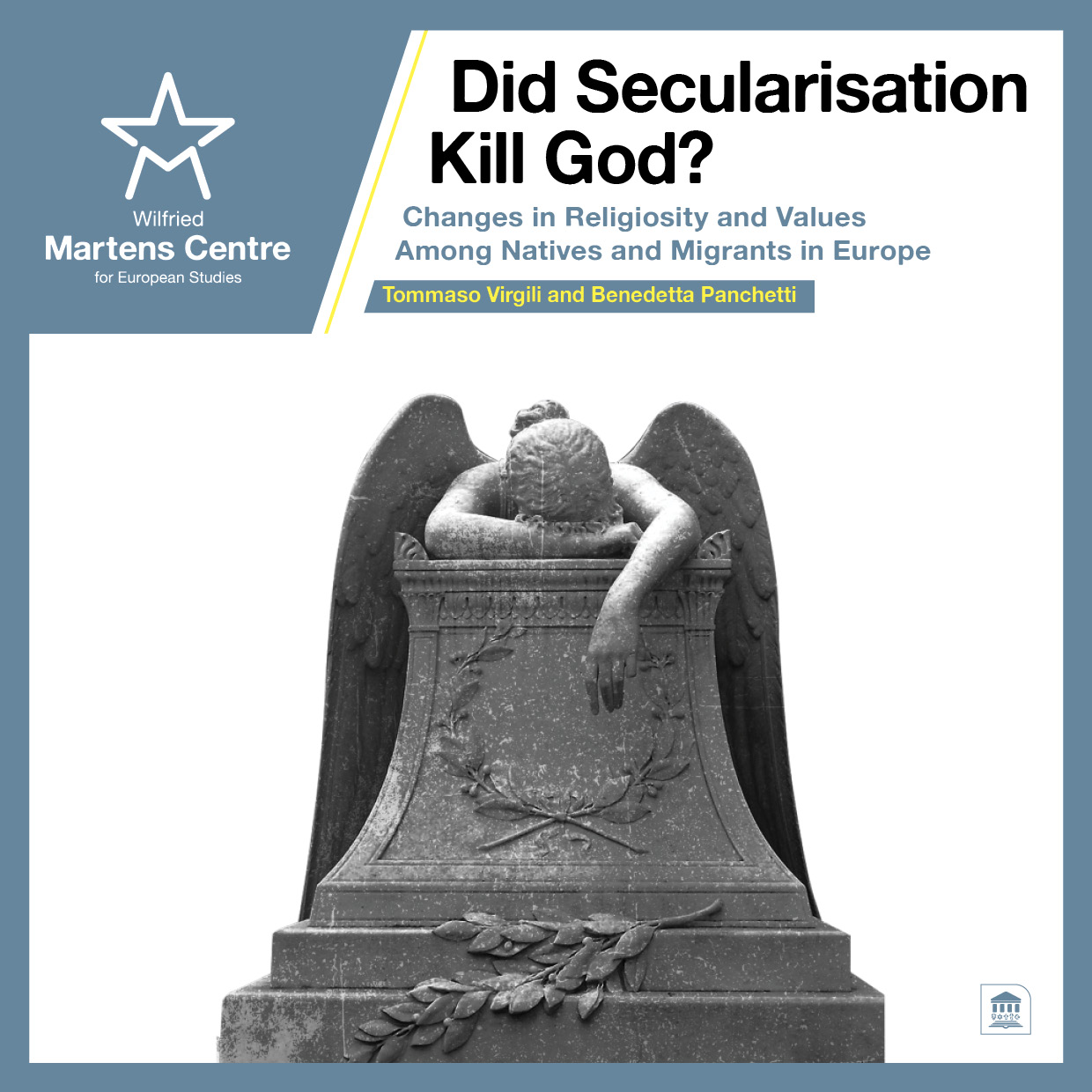
Research Papers
Did Secularisation Kill God? Changes in Religiosity and Values Among Natives and Migrants in Europe
-
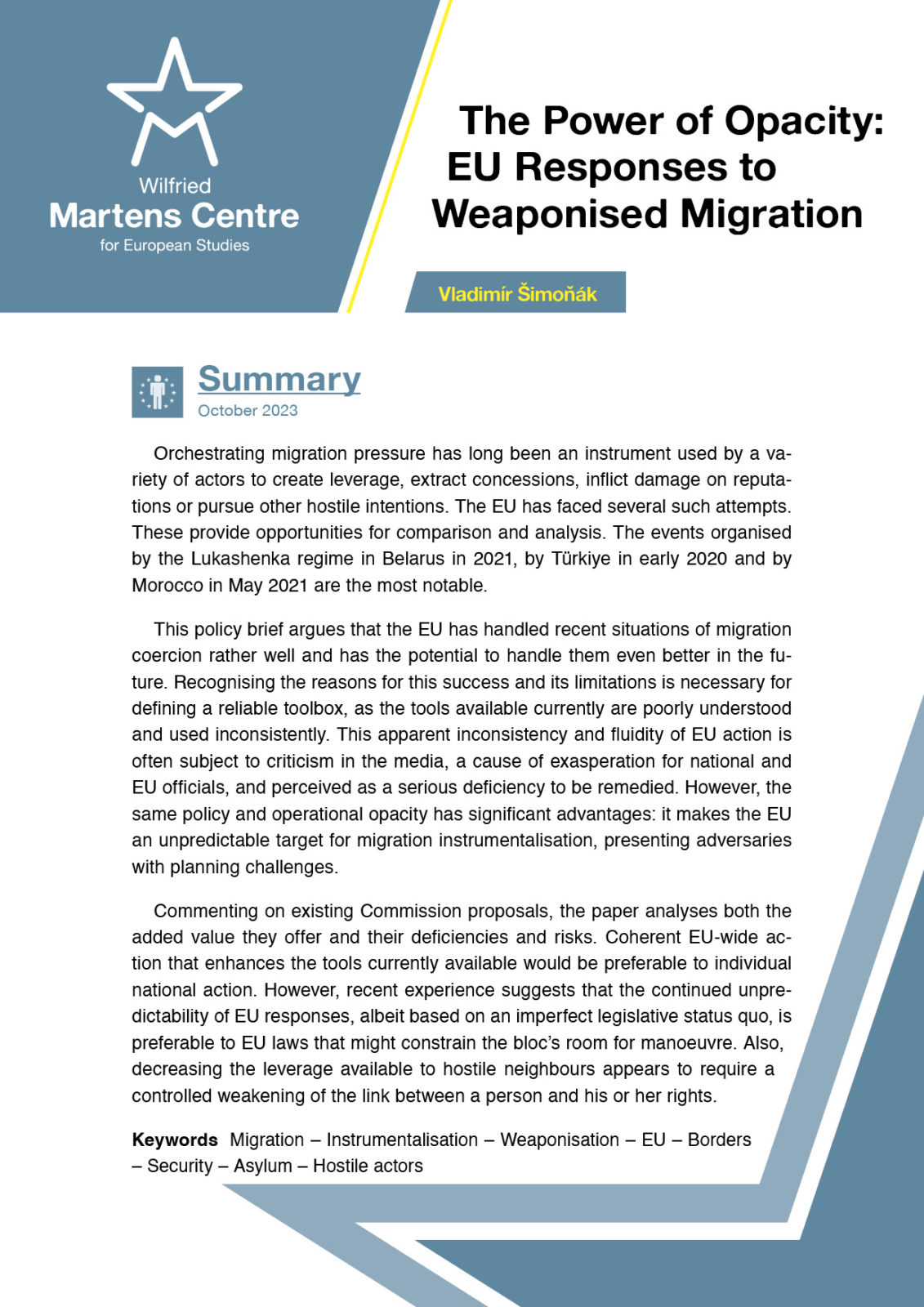
Policy Briefs
The Power of Opacity: EU Responses to Weaponised Migration
-
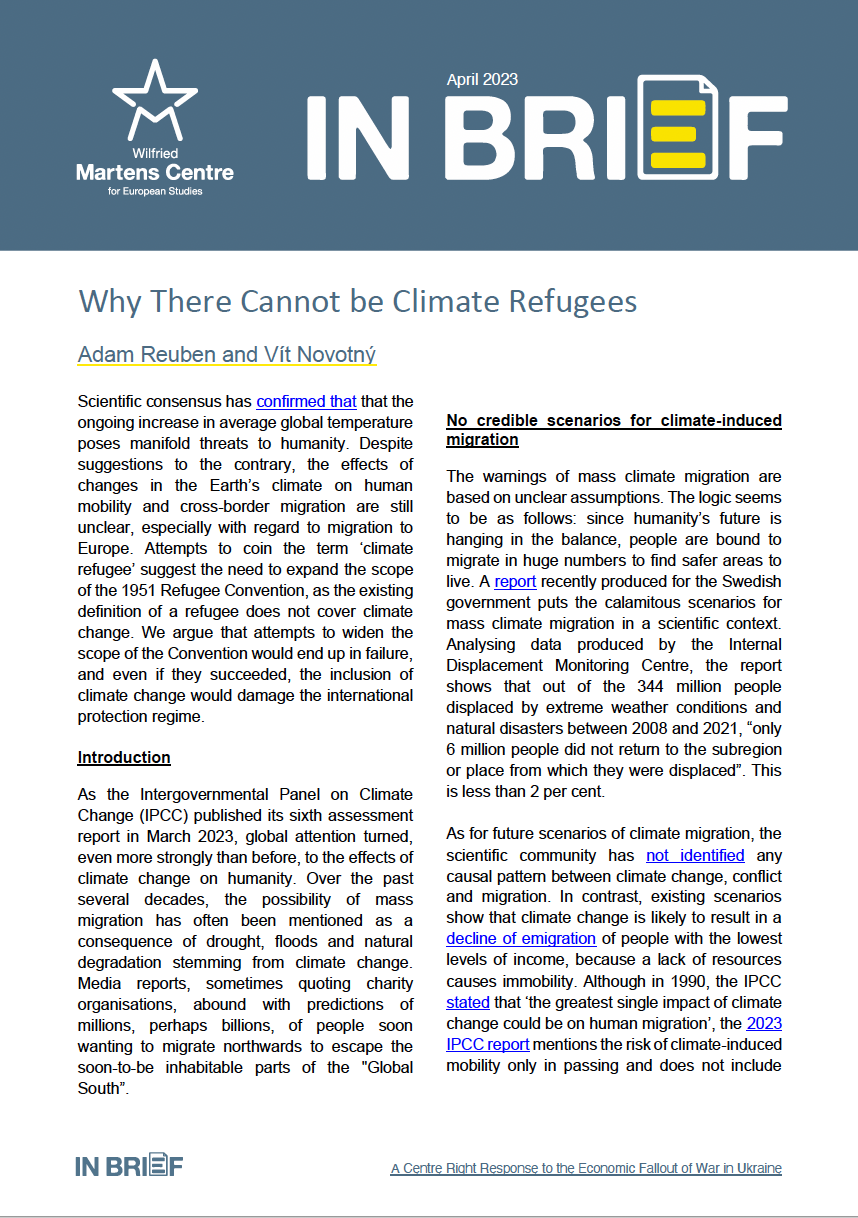
IN BRIEF
Why There Cannot be Climate Refugees
-
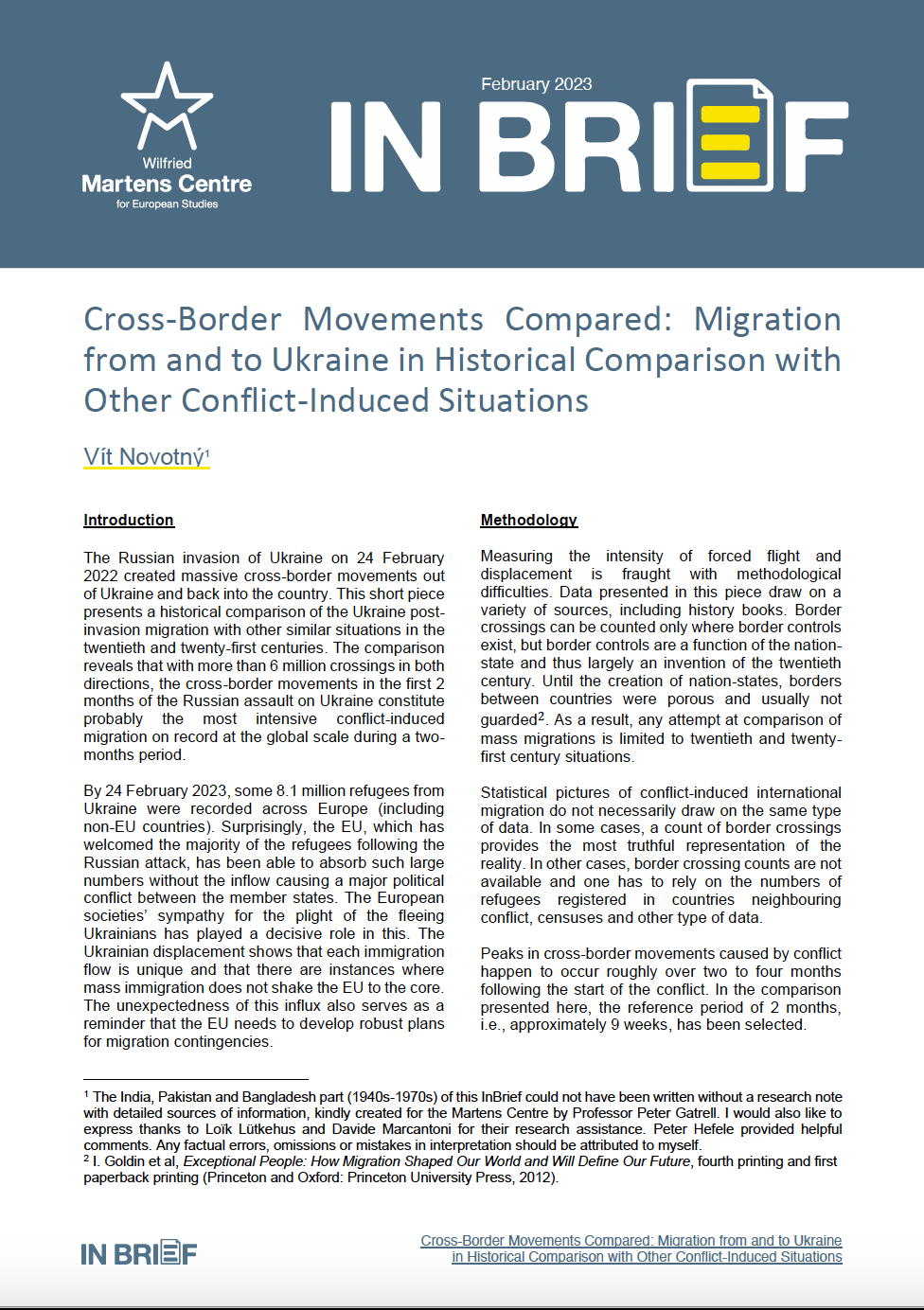
Ukraine
Cross-Border Movements Compared: Migration from and to Ukraine in Historical Comparison with Other Conflict-Induced Situations
-

IN FOCUS
‘Our European Way of Life’ as the Guiding Principle: Shifts in the Understanding of Immigrant Integration at the EU Level
-

IN FOCUS
The Transatlantic Perspective on Migration: Attuning Migration Policy to National Politics
-

Research Papers
Back to Geneva: Reinterpreting Asylum in the EU
-
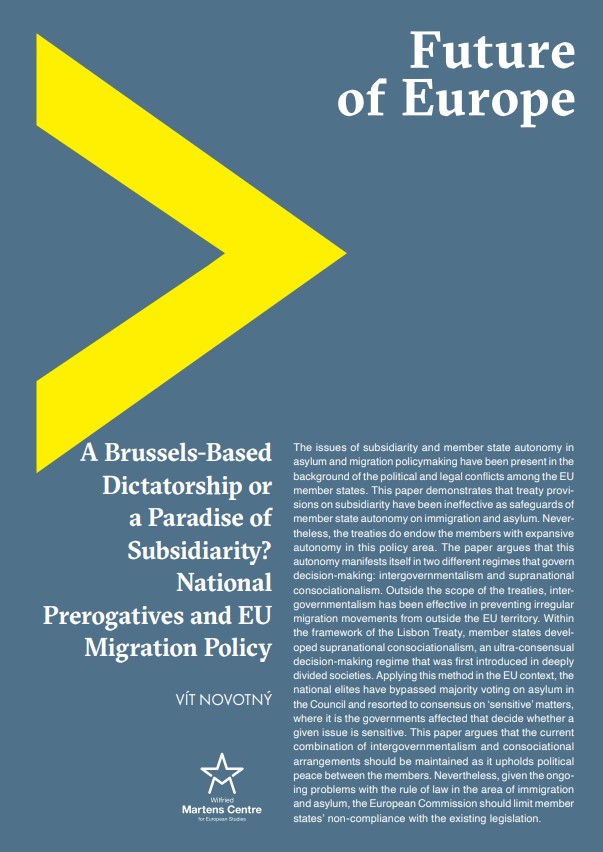
Future of Europe
A Brussels-Based Dictatorship or a Paradise of Subsidiarity? National Prerogatives and EU Migration Policy




